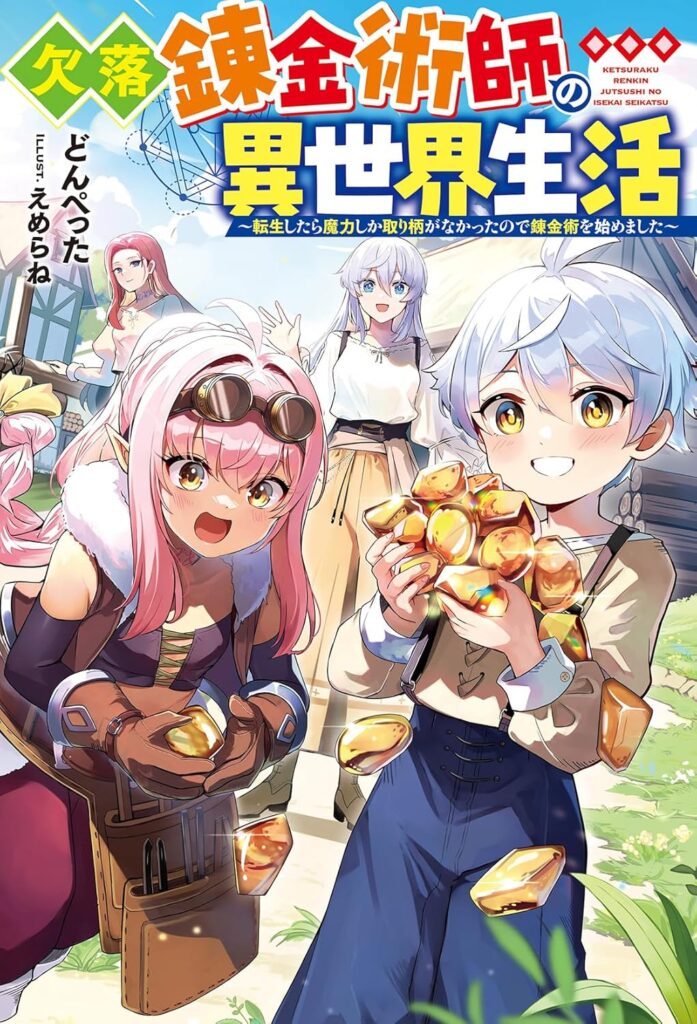
Kays Translations
Just another Isekai Lover~
Chapter 29: Toward the Reopening of the Forge
As I quietly ate my breakfast, the events of yesterday began to replay in my mind. The morning light poured softly through the window, catching in the rising steam of my soup, as if urging me to think ahead.
I managed to dismantle the spider’s carcass, yes—but the process had been grueling. The repeated use of alchemy and materialization drained my mana at an alarming rate, leaving me dizzy and faint by the end.
It became painfully clear that materialization, in particular, consumed far too much energy to be sustainable for long periods of work. It was an effective skill, but terribly impractical for any task that demanded endurance.
Considering what lay ahead, I realized I needed proper tools—real, tangible ones like the kind surgeons might use. Instruments to cut, grasp, pinch, stop, and lift. Precision was key.
And, truthfully, I knew that someone like Rugena could craft tools far superior to anything I could make through alchemy alone. Her hands were trained, her instincts refined by years of smithing. Mine were still clumsy in comparison.
That meant one thing—I needed to make sure the forge could be used again.
“Mother,” I began, setting down my spoon, “have you decided what to do about the forge yet?”
She tapped her chin thoughtfully. “Hmm… Rugena, with the fuel and iron we brought, how much smithing can you actually do?”
Rugena folded her arms, her expression calm but serious. “It is difficult to answer precisely.”
Then she began to explain, her tone methodical and patient, as though teaching a class.
“There are two main ways a blacksmith works,” she said. “The first is casting—melting the metal into liquid and pouring it into molds. The second is forging—heating the metal until it softens, then shaping it with hammer and anvil. Both have advantages and drawbacks. But casting… consumes much more fuel, since you must melt the iron completely.”
I nodded, following along as best as I could. Even so, when she gave her final estimate, I blinked.
“Depending on what we make and the type of metal, it varies,” she said. “But with the materials I have prepared, it is enough to craft six longswords.”
Six longswords…? That didn’t help me at all.
I had told her to prepare double the amount needed to “test” the forge’s performance—but hearing it expressed in swords made it oddly difficult to grasp. I wasn’t planning to forge weapons, after all.
My goal was modest: enough fuel and material for a trial run and perhaps a few basic tools for the villagers. But if production efficiency changed depending on the method or the item being made, then I couldn’t even be sure whether the amount would be enough for small village requests.
I sighed. “Well, I suppose the only way to find out is to actually start using it.”
“Mother, can I speak to the village chief myself?”
She looked surprised. “You, Al?”
“Of course. Rugena is under my care—it makes sense that I’m the one to talk, doesn’t it?”
I could tell that Mother hesitated because of what had happened before. The word ‘widow’—that single, venomous word the chief had once used—still lingered in her memory.
In this world, ‘widow’ didn’t simply mean a woman who had lost her husband. It carried a stain—a whisper of judgment. To be called that was to be branded as someone who had been left behind. That the chief had used it so casually… it was as if he had said aloud that he saw her as less than others.
Of course, Mother wouldn’t want to face him again after that.
Then I would take her place. From now on, I would be the one to deal with the chief.
“This too is experience,” I reminded myself softly.
Mother had once told me that negotiations were part of growing up—she’d said so back when we were dealing with the Opsidio Trading Company.
And this time, it wasn’t even dangerous. Just… delicate.
“Alright,” she finally said, smiling faintly. “I’ll leave it to you.”
“Don’t worry, Mother. I’ll handle it.”
After finishing the morning’s farm work, I took Rugena with me and headed to the chief’s house.
“It’s been a while, hasn’t it, Al?”
It was Freiche, the chief’s wife, who greeted us at the door. She had a gentle, unhurried way of speaking, the kind that made children instinctively trust her. She often shared sweets with them—perhaps that was why everyone in the village adored her.
“Good afternoon, Freiche-san. I’d like to speak with the village chief, if he’s available.”
“Of course,” she said kindly. “He’s in the study, writing something. I’ll fetch him for you.”
She led us to a room she called the reception room. But unlike the elegant parlors of noble estates, this one was furnished with a sturdy wooden table and six chairs—closer to a dining room than anything formal. It smelled faintly of ink and iron.
After a few minutes, the door opened, and the village chief entered.
“Good afternoon, Chief,” I said, standing to greet him.
“Ah, Al. Good afternoon. What brings you here today?”
He didn’t seem angry—or perhaps he was just pretending not to be. Enough time had passed since that last unpleasant meeting; maybe his temper had cooled.
“I came to introduce a new member of my family and to discuss using the forge.”
“Your… family? And the forge?”
He raised an eyebrow and glanced behind me—to where Rugena stood quietly, her silver hair tied back, her short stature unmistakable.
“Pleased to meet you,” she said, bowing politely. “I’m Rugena.”
“…A dwarf. So that’s what this is about. But the forge belongs to the Baron, doesn’t it?”
“Yes,” I replied, keeping my tone respectful but firm. “And my mother already obtained the Baron’s permission. When we took Rugena in, she negotiated with him directly, saying that if Rugena could smith, it would also benefit the village.”
I handed him the written authorization—the official permit I had received from Tounis-sama. There was no need to mention that it had been given in exchange for information about glassmaking.
“I see… well, if the Baron has granted permission, there’s no point in my refusing.”
His words were calm, but the tone—“no point in refusing”—hinted at something else. A reluctance he was trying to mask.
“Does that mean you want to refuse, Chief?” I asked quietly.
He blinked, taken aback. “No—no, that’s not what I meant. It’s just… if the forge is active again, people might start asking you to make things they used to buy from traveling merchants.”
Ah, there it was. The real problem.
Mother had told me before: the forge was abandoned because there wasn’t enough work to sustain a blacksmith’s living.
This village was far from trade routes—isolated, tucked away in the countryside. Transporting heavy materials like iron and fuel here cost too much. Finished goods brought by merchants were cheaper, so eventually, everyone relied on them instead.
In time, the local forge had simply become unnecessary.
But this time, there was another issue: Rugena wasn’t a free blacksmith—she was a slave.
And that changed everything. People might think that because she was a slave, her labor cost nothing. That anything she made would naturally be cheaper than the merchants’ goods. Worse, they might assume they had the right to command her directly, just because she belonged to me.
That kind of thinking was dangerous. In villages like ours, where mutual help was the foundation of life, such lines often blurred. If I wasn’t careful, kindness could turn into exploitation.
Helping one another was a virtue—but when people began to assume they were entitled to that help, it became a vice.
I couldn’t let that happen.
“Rugena is a skilled smith, but she’s also an adventurer,” I explained. “And she helps with farm work too. She’ll only have one or two days a week for smithing.”
That was a generous estimate, honestly—but it made the point.
The chief frowned. “So you’re saying you have no intention of letting her work for the village’s benefit?”
His choice of words—use her—grated at me.
“Please don’t misunderstand,” I said firmly. “Rugena is my family. My household. My mother only got the Baron’s permission because it might benefit the village, yes—but our main reason for using the forge is personal. Any requests from the villagers will only be accepted if we have the time.”
He folded his arms. “So it’s just a… side business?”
“Exactly. She won’t be working commercially. She’s helping us. If she happens to do some repairs while she’s at it, that’s all. And of course, we’ll expect proper payment for her work.”
I had to be clear now. One wrong impression, and the line between cooperation and exploitation would vanish.
“And you think the villagers will accept that?” he asked.
“They’ll have to. We don’t have enough iron or fuel to take on large requests anyway.”
I leaned slightly forward. “If anyone disagrees, they’re free to hire their own smith—and bring their own iron and fuel.”
The chief chuckled softly. “Well, that’s impossible, isn’t it?”
“Then I suppose they’ll understand.”
For a moment, the chief studied me, then sighed and nodded. “Very well. I’ll inform the others.”
“Thank you,” I said with a bow. Relief loosened my shoulders.
At last, the path was clear.
Now, all that remained was to finish the harvest—and once that was done, the forge could burn again.
And when it did, maybe—just maybe—it would mark the start of something new for our small family.
